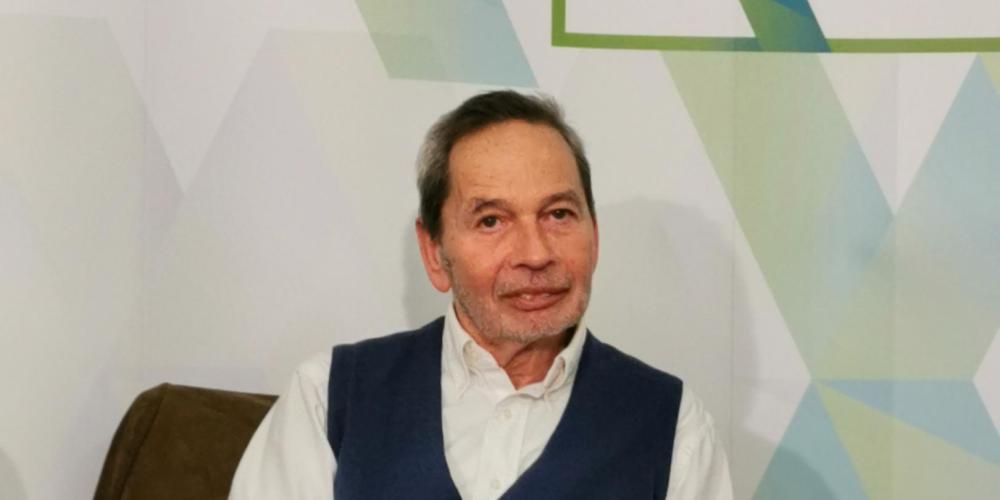
On Wednesday 27 September, VUB launches a series of lectures on the history and philosophy of knowledge. The speakers are renowned intellectuals: the first three are sociologist Frank Furedi, science historian Sietske Fransen and historian Taha Yasin Arslan. The series is the idea of VUB professor Kees-Jan Schilt, a Dutch historian and philosopher of knowledge. “The lecture series will be interdisciplinary. Historians, philosophers, literati... we’ll hear from them all.” He received an ERC starting grant in 2022.
You can register here for the first speaker Frank Furedi.
What’s the idea behind this lecture series?
The central theme is knowledge in an international perspective. We ask questions such as: what does it mean to know? What do we know about past knowledge? What do chatbots mean? How do we deal with the ethics of AI? It covers all of society, in the present and the past.
It’s open to people from all disciplines and backgrounds, especially scholars and students of the arts and philosophy. We need to open the closed doors of our workspaces and connect with each other. I would love to see more connection.
We want to make the lectures accessible but of a high standard. Undergraduate students should be able to understand it, and it should be accessible to well-educated laypeople. The speaker gets 45 minutes for their presentation, followed by 45 minutes of conversation with the audience.
How are you using the ERC start-up grant?
I used it to start the research project Veritace, which focuses on the influence of ancient writings on the development of early modern natural philosophy. During the Renaissance, works such as the Chaldean Oracles, the Sibylline Oracles, the Corpus Hermeticum and the Orphic Hymns were rediscovered and re-appropriated as prisca sapientia. Prisca sapientia is a doctrine that regarded these writings as truths about God, humanity and the universe. All knowledge was said to have been given to man by God at the very beginning of mankind. Besides Isaac Newton, great scientists like Nicolaus Copernicus, Johannes Kepler, Francis Bacon, Pierre Gassendi and Gottfried Wilhelm Leibniz all placed themselves within this tradition.
But to date, there is no comprehensive account of exactly what they drew from these ancient writings and how the concept of an eternal truth influenced their learning. We want to do that with this project, so we’re ploughing through half a million books. We’re looking at what sort of quotes are used, which writings are cited, which authors are referenced. This is the work of a monk, but these days we have countless digital possibilities and we’re going to apply them to all these works.
What’s your background?
I come from a working-class background. I was born in Schoonhoven, the “silver town” on the river Lek. I didn’t complete my initial studies and worked as a social worker before I realised I needed an intellectual challenge. After catching up on high school physics, I did a bachelor of physics and astronomy in Utrecht. I was then admitted to a research master’s in history and philosophy of science, where I was introduced to Isaac Newton. As one of the greatest thinkers in the history of science, he continues to inspire me immensely to this day and, in a way, define my career.
Despite graduating cum laude, I went on to work in computer science. That lasted until 2013, when I moved to Brighton, England, to join the Newton project at the University of Sussex. This is an extraordinary scientific exercise in which researchers are digitising all of Newton’s publications: it’s no small feat, as he published huge amounts of text on mathematics, natural science, astronomy, theology and even alchemy.
After that venture, I ended up at Oxford University. In 2018, I completed my PhD there on Newton’s view of history. He adhered to the idea of prisca sapientia: history repeats itself. God gave all knowledge to man. He was one of the last to still believe that.
Veritace is a continuation of my PhD research. Because of Brexit, my academic career in England came to an end. However, an acquaintance at VUB – who is now a colleague – had a postdoctoral position available about Newton that was right up my street. Once I came to Brussels, I applied for an ERC grant with Ca’Foscari Venice University in Venice, partly because it has often been successful. When the grant was awarded, there turned out to be no opportunities for me there. There was, however, space at VUB and I’ve since been appointed research professor here. I can’t help but be very happy about that: there is lots of enthusiasm, great people and lots of knowledge.
Programme
These are the speakers for the 2023-24 autumn semester, on Wednesdays from 16.15 to 17.45 (doors open at 16.00). Location: C2.07a at the VUB Campus in Etterbeek.
27 September Prof Dr Frank Furedi (University of Kent)
11 October Dr Sietske Fransen (Max Planck Research Group, Bibliotheca Herziana, Rome)
25 October Prof Dr Taha Yasin Arslan (Istanbul Medeniyet University)
8 November Dr Joëlle Weis (Trier Center for Digital Humanities)
22 November Prof Dr Daniel Margocsy (University of Cambridge)
6 December Prof Dr Rens Bod (University of Amsterdam)